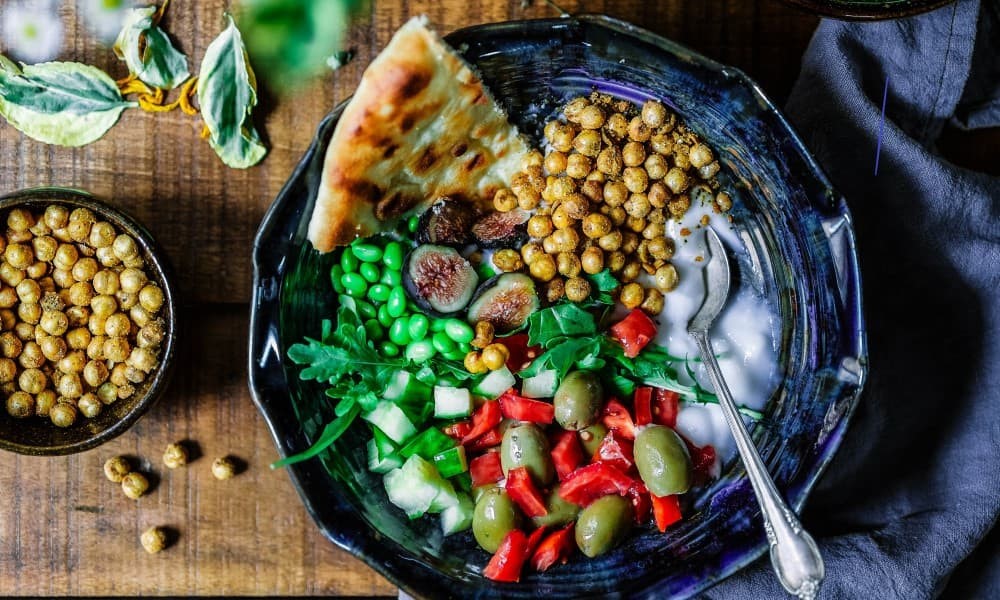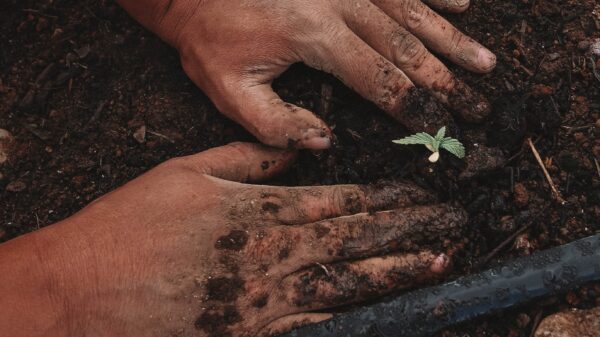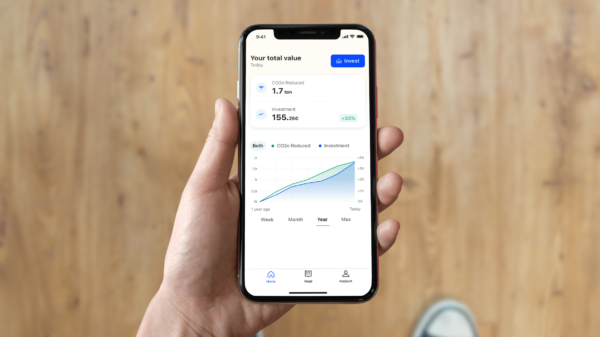A new year often inspires a new challenge, whether it’s a fitness goal, something to tick off the bucket list, or…perhaps dipping your toe into the world of veganism? Veganuary has inspired and supported more than one million people across the globe to try a plant-based diet for January – and beyond.
Becoming vegan is one of the ways that you can help to reduce the global strain on food and other resources, as well as make a stand against food production systems that impact some of the poorest people across the world. The Vegan Society explains how vegan and plant-based diets use less resources here.
While the environmental, health, and ethical benefits of veganism are beyond doubt, it can be hard to know where to start. Here, we look at some simple steps to help you on your journey, whether you choose to try veganism for January, or permanently adopt it as part of your sustainable lifestyle.
Take your time
For many, embracing a vegan lifestyle is a gradual transition as you seek out what works best for you – don’t be concerned if it takes longer than you think. Keep your end goal in mind, but take your time.
A good place to start might be trialling a meat or dairy-free day a week, then moving up to incorporating a vegan meal each day, and increasing over time. Or you might find it easier to swap out a product at a time, especially as more and more supermarkets are launching plant-based alternatives e.g., milk, mayonnaise, or yoghurt.
Do your research
Take a deep dive into your fridge and cupboards before fully committing to a vegan diet. You may be surprised to find that some of your favourite foods contain animal products. Here are some examples of unexpectedly non-vegan foods:
- Red foods
Some red-dyed food and drinks may contain an ingredient called carmine (or cochineal), which is derived from the cochineal insect. - Veggie burgers
Some vegetarian burgers contain eggs or dairy – check the labels. - Dark chocolate
Cocoa is vegan, but sometimes milk or milk products are added to dark chocolate. Check the labels for dairy (including whey and casein). - Sweets
Sugary sweets like gummies and marshmallows may contain gelatine, a product derived from animal collagen, so watch out at the pick & mix.
Get cooking!
Cooking for yourself and your loved ones from scratch can be a really fulfilling process – especially when you know that it’s packed full with the delicious and nutritious goodness from veggies and wholegrains at the core of vegan cooking. Pick up some new recipe books or have a quick look online to try new flavours and ingredients. BBC Good Food is always a winner, and a personal favourite!
Make sure your kitchen is filled with fresh fruit and vegetables, nuts, beans, rice, flour, dried fruit, breakfast cereal and granolas, pasta and noodles, nut butters, and tahini, so you’re always ready to knock up your next meal!
Stay ahead with meal prepping
The growing availability of vegan products in supermarkets means you can adopt the diet more easily than ever before, yet for the novice on the hunt for convenience food a trip to the shops can still lead to getting lost in labels!
This is where the art of meal prepping comes in. Preparing whole meals or dishes in advance means that you have a supply of ready-made nutritious vegan food just waiting to be eaten. It’s also budget-friendly and saves time during the working week.
Get your nutrients
While the British Nutrition Foundation points out that a well-balanced vegan diet should give you the vitamins and minerals you need, there can be a risk of nutritional deficiencies – this can include a lack of calcium, omega-3 fatty acids, and vitamins B12 and D.
Plant milk, yoghurt alternatives, soya, and linseed bread fortified with extra calcium should be considered for those on a vegan diet. Also, to get enough omega-3 fatty acids it is suggested to regularly consume chia seeds, ground linseed, hemp seeds, and walnuts. Also, eating fortified foods such as dairy alternatives, breakfast cereal, dairy-free spread, and yeast extract will help keep up levels of vitamin B12.
It’s also worth saying that eating more fruit and vegetables is widely known to contribute to a decrease in risk of diseases such as bowel cancer while consuming more wholegrains, soy, and nuts, are known to help protect your heart.
If you’ve got any tips for going vegan this Veganuary, why not comment below and help others on their journey!










